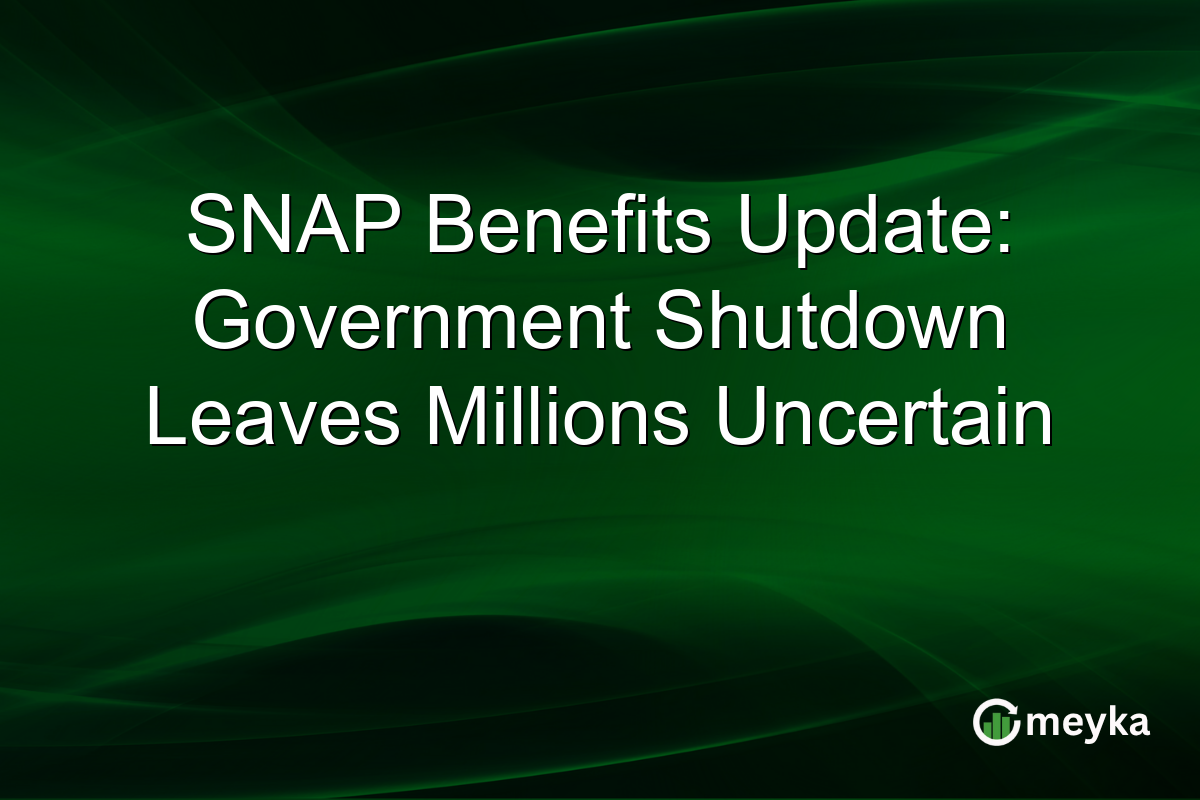SNAP Benefits Update: Government Shutdown Leaves Millions Uncertain
The recent U.S. government shutdown has led to the suspension of SNAP benefits, affecting millions of Americans who depend on this vital food assistance program. Although temporary legal rulings have paused a total halt, significant funding issues loom, leaving beneficiaries in limbo. This situation underscores the SNAP benefits suspension’s immediate and far-reaching implications, particularly for sectors reliant on lower-income consumer spending.
Continue Reading on Meyka
This article is available in full on our main platform. Get access to complete analysis, stock insights, and more.
Read Full Article →





